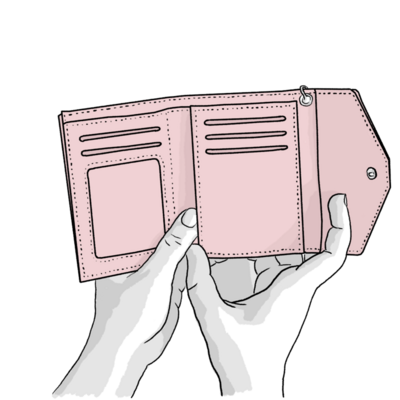As voters begin contemplating the next nine months, many are wondering, is a Trump-Biden rematch really the best the United States could do? Here’s what the lack of enthusiasm may signal for November’s election.

Why is ���Ǵ��� Science in our name?
Our name is about honesty. The Monitor is owned by The First Church of Christ, Scientist, and we’ve always been transparent about that.
The church publishes the Monitor because it sees good journalism as vital to progress in the world. Since 1908, we’ve aimed “to injure no man, but to bless all mankind,” as our founder, Mary Baker Eddy, put it.
Here, you’ll find award-winning journalism not driven by commercial influences – a news organization that takes seriously its mission to uplift the world by seeking solutions and finding reasons for credible hope.
Explore values journalism About usAlready a subscriber? Log in
Already have a subscription? Activate it
Ready for constructive world news?
Join the Monitor community.
SubscribeMonitor Daily Podcast
- Follow us:
 Mark Sappenfield
Mark Sappenfield
Why go to the moon? The arguments against it are clear: It’s expensive, and what does it accomplish, besides making scientists happy?
But in a Q-and-A on the subject today, Sarah Matusek finds something important. “I think there’s always value in exploring, and learning something new, and just trying to transcend our limits as a human species,” science journalist Rebecca Boyle tells her.
What if we could make that our aim in all human endeavor – whether in politics, economics, or security? We don’t necessarily need to go to the moon to do that. But sometimes, someone needs to show what’s possible.
Already a subscriber? Log in
Help fund Monitor journalism for $11/ month
Monitor journalism changes lives because we open that too-small box that most people think they live in. We believe news can and should expand a sense of identity and possibility beyond narrow conventional expectations.
Our work isn't possible without your support.
Today’s stories
And why we wrote them
( 6 min. read )
Today’s news briefs
• Social media CEOs testify: The CEOs of Meta, TikTok, X (formerly Twitter), and others testify before the U.S. Senate Judiciary Committee about protecting children on their platforms.
• Pakistan courts take aim: A Pakistani court sentences former Prime Minister Imran Khan and his wife to 14 years in prison for corruption a day after another court handed Mr. Khan a 10-year sentence for leaking state secrets.
• Oregon fentanyl emergency: Several elected leaders in Oregon declare a state of emergency for downtown Portland over the public health and public safety crisis fueled by fentanyl.
• European farmer blockades: French and Belgian farmers set up dozens of blockades on highways and key roads to press governments to ease environmental rules and protect them from rising costs and cheap imports.

( 5 min. read )
For the Druze, an Arab religious minority, serving the state in which they live is both a civic duty and a tenet of their faith. Yet after the horrors of Oct. 7 and their losses since, Israeli Druze see the Israel-Hamas war as becoming increasingly personal.
( 4 min. read )
In Thailand, improving access to period products requires breaking stigmas as well as material investment. Though national efforts have stalled, local programs have created space for young people and experts to openly address menstrual health.
( 5 min. read )
The moon is back: Private companies are attempting lunar landings this year, and NASA is preparing to return astronauts. One science journalist offers perspective on stewarding the new phase of exploration.
( 4 min. read )
Progress often starts with an investment. In this week’s progress roundup, startups boom in Latin America, and a U.S. university gives Indigenous teachers a boost.
The Monitor's View
( 3 min. read )
With just a little searching on the internet, it is possible to find scores of current examples of people across Latin America striving to overcome persistent violence and economic hardship. Mayan women raising chickens in Guatemala rather than trekking north to seek jobs in the United States. Mothers of gang members in Honduras mediating peace in their urban barrios. A lone priest in Mexico refusing to be interrupted by armed men while delivering his sermon.
Taken individually, these may seem more anecdotal than noteworthy. At a time when gang violence and organized crime are surging across countries from Mexico to Ecuador, however, such humble measures of community are at the center of a regional debate about peace and governance.
Criminal groups are “a symptom that the social contract is in question,” said Mauro Cerbino, a professor at the Latin American Faculty of Social Sciences in Ecuador. He told Civicus, an alliance of civil society groups, that “any effective response will therefore need to ... rebuild the community – through education, art, dialogue and culture – to confer meaning on the lives of so many young people” who feel unvalued and without purpose.
One response that has gained currency among regional leaders is the mass crackdown and incarceration strategy of El Salvador. Since declaring a state of emergency almost two years ago, President Nayib Bukele has virtually eliminated one of the world’s highest homicide rates. Neighboring Honduras is emulating his approach. Ecuador plans a referendum to adopt similar measures.
Mr. Bukele brought peace by locking up 76,000 people – anyone suspected of gang or other criminal activity or association. He is expected to win easy reelection this Sunday, despite changing the constitution to enable him to seek reelection. People say they can take their children to public parks again. Critics say democracy has been trampled. Vice President Félix Ulloa admitted as much on Tuesday but argued that security was the better trade-off for limiting individual rights.
In El Salvador’s other neighbor, Guatemala, a new government is now pursuing a different strategy based in part on countering corruption to restore economic opportunity. The approach is shaped around values that President Bernardo Arévalo cultivated during 25 years of peace building in other countries, such as respect, reconciliation, and individual dignity.
The objective of peace building is “not to create dialogues, but to build societies that know how to talk to each other, that know how to establish agreements, that know how to manage differences,” President Arévalo told the United States Institute of Peace.
Such dialogue has many venues. A local group literally sewing peace into its community is Trama Textiles, a cooperative owned by Mayan women in Guatemala that promotes equality through traditional weaving. It notes on its website that art “fosters affection” and “ameliorates isolation.”
In El Salvador, one church leader has turned his kitchen into a bakery, offering former gang members a way back into society. “Reintegration is nothing more than giving an opportunity to someone who no one else wants to help,” Pastor Nelson Moz told La Croix International last year.
A dialogue is unfolding across Latin America about the best way to build peace through governing.
A ���Ǵ��� Science Perspective
Each weekday, the Monitor includes one clearly labeled religious article offering spiritual insight on contemporary issues, including the news. The publication – in its various forms – is produced for anyone who cares about the progress of the human endeavor around the world and seeks news reported with compassion, intelligence, and an essentially constructive lens. For many, that caring has religious roots. For many, it does not. The Monitor has always embraced both audiences. The Monitor is owned by a church – The First Church of Christ, Scientist, in Boston – whose founder was concerned with both the state of the world and the quality of available news.
( 3 min. read )
Opening our hearts to Christ empowers our efforts to help others in meaningful ways.
Viewfinder

A look ahead
Thank you for joining us today. We hope you’ll come back tomorrow when we launch our next big project: Rebuilding Trust. During the next three months, a steady stream of our stories will look at trust – how it drives so much of today’s news, and how we can think about it more constructively.








